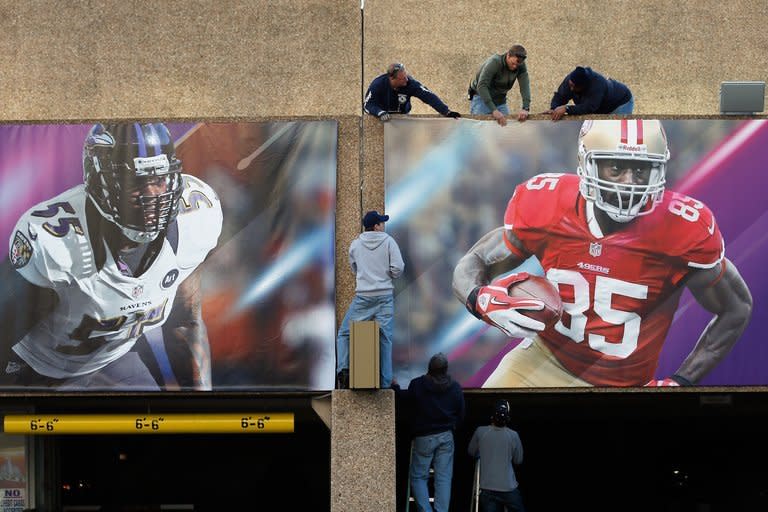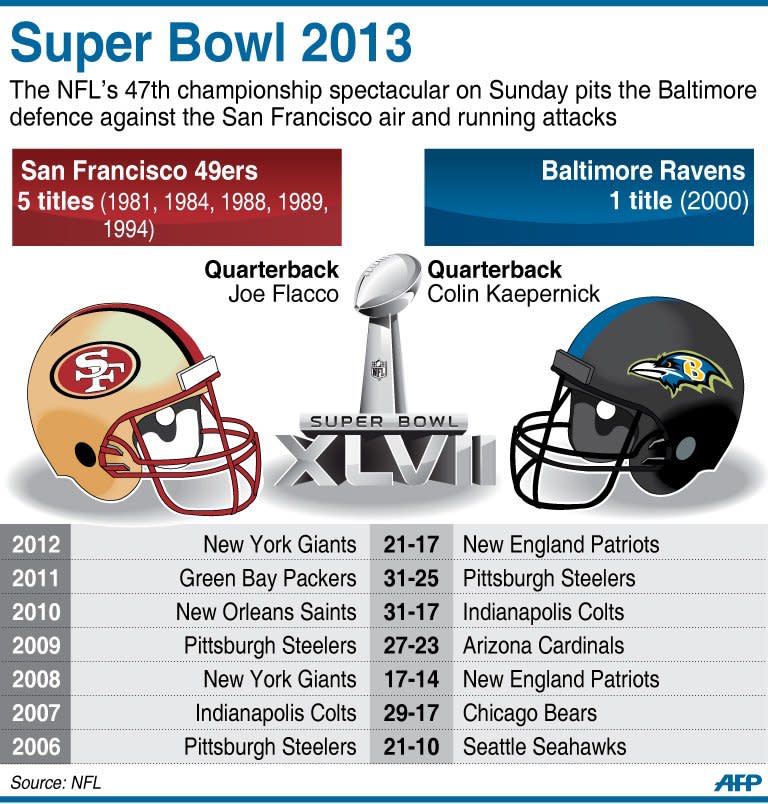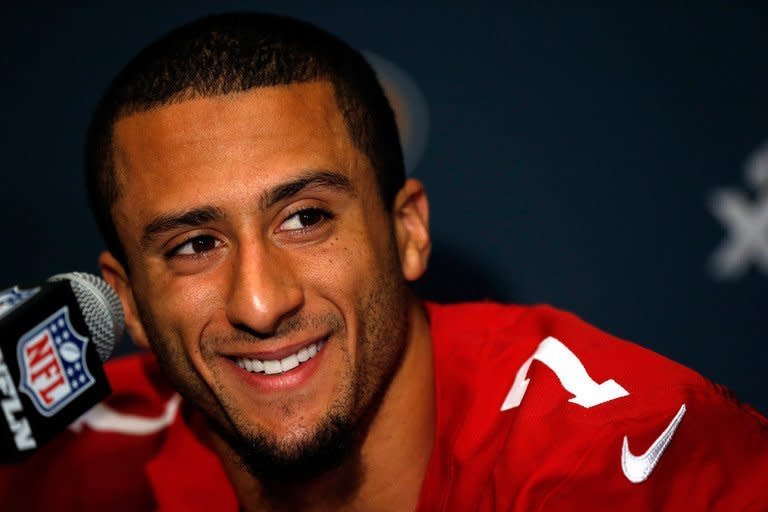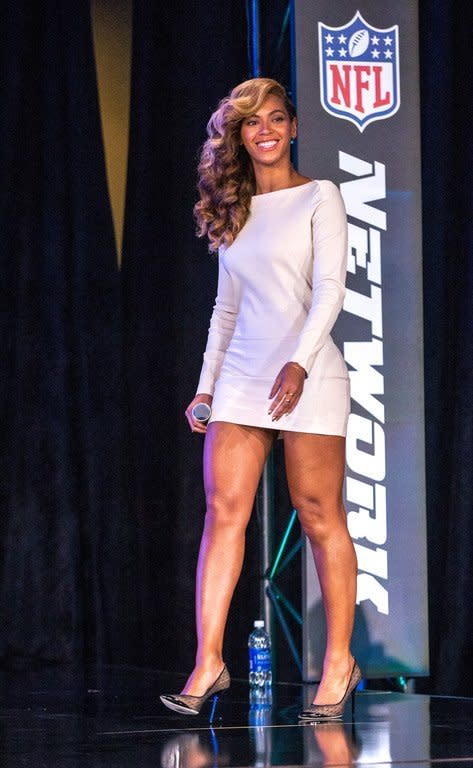Super Bowl returns to the Big Easy
New Orleans will return to the center of US sport's grandest stage by hosting Super Bowl 47 on Sunday, a major milestone on the southern city's road to recovery from Hurricane Katrina. It is the first Super Bowl here since the Big Easy was hit in 2005 by the massive storm, which killed close to 2,000 people and caused billions of dollars of damage in four American states. The Baltimore Ravens face the San Francisco 49ers in the National Football League championship game at the Superdome stadium, which kicks off at 5:30 pm local time (2330 GMT), and will be watched by tens of millions of Americans in primetime. More than 5,200 accredited media are in town from 25 countries, according to Mark Romig, spokesman for New Orleans' Super Bowl Host Committee. "I think Super Bowl week is a microcosm of the world," he said. "You get competition, you get people from all walks of life coming here with all opinions." It is the tenth time the Super Bowl has been held in New Orleans and the sixth time at the Superdome -- which sheltered thousands of people for several days after Katrina made landfall. The significance is not lost on the teams. "I think our guys really understand the whole dynamic here," said Baltimore Ravens coach John Harbaugh, who noted his great respect for the once devastated city's people. "Everybody in America understands Katrina and New Orleans. "It has been really neat to drive around town. We've had a police escort so we beat the traffic and we had a chance to look at the city and see the rebuilding that's been done. "To see it up close and personal is special. The Superdome is in great shape, the whole city looks great." Colin Kaepernick, the 49ers star quarterback, also described the importance of the spectacle, both nationally and abroad. "It is a great opportunity to put New Orleans back on the map after what happened here," he said. The biggest number of deaths from Hurricane Katrina occurred in New Orleans, where the levee systems failed. Floodwaters lingered for months, leaving 80 percent of the city and large areas of neighboring parishes under water. The recovery has been slow but steady, with the economy picking up. Football revelers are getting a double dose of high octane partying, with the Super Bowl and Mardi Gras coming in the same month. The Super Bowl is also a major event for national and international advertisers. The broadcast of last season's game averaged 111.3 million viewers, making it the most-watched program in US history. A 30-second commercial spot this year was reportedly going for roughly $4 million. "This is the pinnacle of the ads industry," said Andrew Billings, a communications expert from the University of Alabama. "This is the gold standard of the music industry - if you get the halftime show of the Super Bowl, you've made it." City officials have pulled out all the stops to let visitors know New Orleans is top of its game again. The state of Louisiana provided $6 million and the local organizing committee raised $7.5 million to put on the game, which will also see pop star Beyonce sing at half-time. The Superdome, which is located just blocks from the city's famous Bourbon Street, has been spruced up on the outside with giant banners promoting the extravaganza. Extra security, including police on horseback, has been added downtown, and additional city maintenance crews have kept streets and sidewalks clean for visitors. "We would love New Orleans to be in a regular Super Bowl rotation," Mary Matalin, a member of the Super Bowl Host Committee told USA Today. "The country will be shocked to see how well the city is doing. It's been a unifying event for the city on a topic greater than sports. It's a great story to show how it is done, how the whole community can engage to rebuild." New Orleans will be tied with Miami for the most Super Bowls hosted. Four of the first 12 Super Bowls were in New Orleans from 1970-78. The last Super Bowl in New Orleans was in 2002, three years before Katrina severely damaged the Superdome. The stadium has been repaired and renovations ahead of the most watched single event in American sports are now complete. Civic officials put to good use the relief money that came in after Katrina. The Louis Armstrong New Orleans International Airport received a $350 million face-lift while another $52 million was spent on a downtown street car line. Millions were also spent on fixing up downtown hotels, museums and the convention center. The latter is now being used as the main media center for the Super Bowl. According to Romig, hosting the event will bring an estimated $432 million in spending to the New Orleans region. Ravens safety Ed Reed is from New Orleans and will have one of the loudest cheering sections at the game. "It's huge. Being at home, this is special," Reed said. "For my first Super Bowl, to be playing in my first Super Bowl in New Orleans, I just want to do this for the city."






